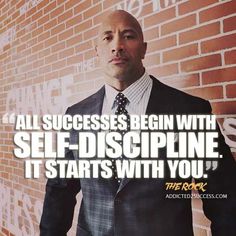Success Advice
3 Must-Haves For Increasing Your Self-Esteem

Why are your successes never enough to outweigh the failure you fear and take so personally?
This fear has planted roots in your psyche and eroded your self-esteem. It cripples your thinking and overshadows everything you do.
What you and most people don’t understand is that success is personal.
Unless you make it personal, you’ll be stuck forever in the tracks your fear has laid down.
When I finally realized the biggest barrier to my success was me, I honestly didn’t know what to do.
For too many years, my success had depended on getting recognized for my contributions as I helped other people become successful. It took me a while to realize that my unquenchable need for their approval had screwed up my self-esteem.
Too bad I didn’t realize that before starting my own business.
Learning to Get Out of Your Own Way
It wasn’t just the business failure though – I had failed myself. Going to work for someone else again would have been another kind of failure.
I had to figure out how to move forward differently.
To do that, I had to accept failure as the great information provider it is, instead of a personal reflection of me.
In doing that I came to understand the personal nature of success.
The 3 Must-Haves I Discovered That Will Up Your Self-Esteem and Drive Your Success
Because success is personal – you must get personal with yourself.
In building up my self-esteem, I had to rethink how I looked at myself. That’s what you’ll need to do too.
These exercises will have you becoming less outwardly focused, and more self-aware, in a good, non-obsessive way.
They are the necessary steps for changing your motivation from fear to one that will have you manifesting a success that is uniquely yours.
Must-Have #1: Good Control Over Your Inner Critic
No one is harder on you than you. One of the biggest barriers to your success is all the negative self-talk your inner critic inflicts on you.
It affects not only how you think about yourself (self-esteem), but also how you think about what you do (self-worth.)
Too much negativity and your inner critic harps on all your real or imagined failings. You need to get that ongoing barrage of abuse under control.
Controlling Your Inner Critic
How do you do it?
Ridicule.
Seriously, when your inner critic starts dumping on you:
- Turn it into a figure of fun.
- Laugh at it! Laugh at what it says about you.
- Imagine how ridiculous it looks, and take that look to the extreme.
I see my inner critic as a bulldog – with a bright pink ruff around its neck. Just picturing it shrinking down and sitting in one of those fancy little teacups makes me laugh.
Why does this work?
By taking control of your interactions with your inner critic, you’re stepping out of the role of being its victim. Taking control is a positive step that ups your self-esteem.
The more you interrupt your inner critic’s patterns of negativity, the easier it is to change what you think about yourself.
“To dream by night is to escape your life. To dream by day is to make it happen.” – Stephen Richards
Must-Have #2: Willingness to Embrace Your Weaknesses
Criticizing yourself for having weaknesses, over-compensating for them, or blaming them for your failures actually gets in the way of your success.
This must-have is about looking at them and yourself with compassion. Just believing you deserve such kindness is a great boost to your self-esteem.
Embracing Your Weaknesses
So what do you do?
Switch from a criticizing mindset to one that looks for improvements. Accept both your strengths and weaknesses.
This is how you start:
- Identify where you can make small changes that have a positive impact.
- Start by going for easy wins.
- Get the changes locked-in, and move onto the next ones.
When you disparage parts of yourself, you create internal conflicts and end up focusing on fixing the wrong things.
Why does this work?
There are three primary reasons why this works:
- Small changes add up and create larger impacts.
- One success builds on another.
- Doing positive things for yourself adds to your feelings of self-worth, and ups your self-esteem.
When I did this, I saw where I could make changes to my business model. The result? More opportunities for success, and more trust in myself.
“Motivation is what gets you started. Habit is what keeps you going.” – Jim Ryun
Must-Have #3: An Old-Fashioned “Fly By The Seat of Your Pants” Attitude
The first planes were essentially physical extensions of the pilots. The actions the fliers took were limited, purposeful and focused on achieving the desired outcome.
There’s nothing like life or death situations for giving purpose and meaning to what you do.
What you need to have is the same attitude as the old-fashioned pilots. Don’t make a move that doesn’t have the express purpose of getting you one step closer to success.
Getting This Focused Attitude
How do you get it?
Start by answering this question: What do you value and how do you want to be manifesting, feeling, and expressing those values to the world?
Then expand your answer by completing these 3 steps:
- Identify your self-chosen ideals, the ones that resonate with you.
- Translate them to specific value statements for all areas of your life: family, health, financial, spiritual, community, etc.
- Determine what you want to manifest and express to the world about your values.
Taking this advice that comes from Jack Canfield helped me consolidate the changes I was making, and increased my focus. Doing this work helps you build the foundation of your success.

Why does this work?
It’s about connecting the dots between your thinking, feelings, and beliefs. When you’re done, you have an integrated picture of who you are and clarity on what you value.
This is where success gets personal.
This is where you clearly define what success means to you.
This is where you get your ongoing motivation for manifesting your success.
How The 3 Must-Haves Work Together To Up Your Self-Esteem and Drive Your Success
It takes a healthy self-esteem to put yourself out there in a way that is uniquely personal to you.
A mindset that looks for improvements helps you handle setbacks and failures, in a positive way.
The right attitude keeps the focus on what you value and how you express those values. It’s what pulls all the pieces together and gets everything you do pointing in the same direction.
When that happens, you know what advice to follow, what programs to use, and what steps to implement.
“The mind is a powerful thing. It can take you through walls.” – Denis Avey
This Is Your Personal Brand of Success
It’s all about you and how you’re expressing and manifesting what you want in your life.
It’s what I’m doing in mine. Finally, for the first time in my life, I’m living and expressing what I value through the work I’ve chosen to do.
Having control over your life and your success in this way is enormously empowering – and more than worth all the effort.
Start at the beginning. Do all the exercises. Take a good look at what you value and how you want to express it.
That’s the success you want.
That’s the success you’ll create.
That’s the success you’ll drive right through the roof.
Here’s to your success!
Success Advice
The 70-Year-Old Management Strategy That’s More Relevant Than Ever
It emphasizes setting clear, measurable goals that align employee efforts with broader company objectives

Every organization has its own vision and mission. But a vision is only as powerful as the people behind it. When employees are actively involved in decision-making and goal-setting, that vision becomes a shared reality. (more…)
Explode Your Social Media
Want More Views? Master These 6 YouTube Growth Tactics
Getting a strong start or feeling stagnant are two completely different problems, but they both need momentum, viewer engagement, and growth to fix them.

Strategic planning combined with unwavering dedication allows you to rise above the chaos of YouTube—luck won’t get you anywhere. (more…)
Change Your Mindset
The Leadership Skill Nobody Talks About (But Changes Everything)
Curiosity often takes a back seat to certainty and gets labeled as a soft skill, which makes it sound obvious and easy

Most of us, when faced with challenges, instinctively seek certainty and answers. In turn, our ego steps in and prompts us to defend our views, double down, or perhaps disengage. (more…)
Success Advice
Breaking the Bias: How Females Can Thrive In The Workplace in 2025
The good news is that some steps can also be taken by female business leaders who are looking to voice and fight these issues, take charge of their careers, and grow their business or influence in the industry.

Over the past 100-odd years, women have played a critical role in the ever-changing labor force. (more…)
-

 Success Advice4 weeks ago
Success Advice4 weeks agoThe One Mindset Shift That Made Me Irreplaceable At Work
-

 Scale Your Business4 weeks ago
Scale Your Business4 weeks agoWhy Smart Entrepreneurs Never Skip This One Business Expense
-

 Did You Know3 weeks ago
Did You Know3 weeks ago7 Surprising Life Lessons Video Games Taught Me That School Never Did
-

 Success Advice3 weeks ago
Success Advice3 weeks agoHow Playing by the Rules Became the Smartest Business Strategy
-

 Success Advice3 weeks ago
Success Advice3 weeks agoHow to Build Trust, Kill Micromanagement, and Lead a Team That Thrives
-

 Scale Your Business2 weeks ago
Scale Your Business2 weeks agoHow to Build a Workplace People Actually Want to Show Up To
-

 Success Advice2 weeks ago
Success Advice2 weeks agoSuccess Isn’t Sexy: 5 Daily Habits That Actually Work
-

 Scale Your Business2 weeks ago
Scale Your Business2 weeks agoHow Smart Entrepreneurs Cut Financial Chaos in Half with One Simple Switch






























22 Comments